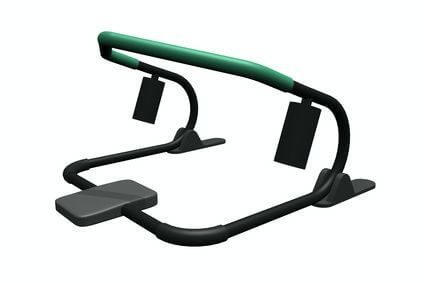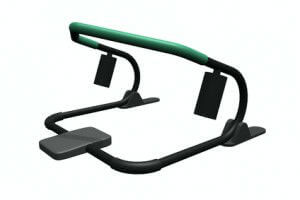
There have been many fitness gadgets over the years that have promised that “you too can look just like this!” if only you use the particular tool that is being advertised. Remember the Thigh Master that actress Suzanne Somers famously promoted? Or how about Tony Little’s Gazelle?
While any exercise is better than none at all, the benefits gained by many of these workout tools that are often sold during infomercials on late night television could be had without spending your hard earned money or wasting the storage space.
It’s easy to look back on some of those objects and laugh now, but how do you know if a fitness product might be able to help you get into better shape?
Consider these tips to help you make a practical decision:
Does it promise to reduce fat in a specific body part?
Remember that spot reduction is just a myth. It is virtually impossible to lose fat from just one body part such as your stomach or thighs. The only way to accomplish this is by eating a nutritious diet and exercising. If you have fat covering those abs, performing sit ups day after day will not give you a six-pack unless you lose it.
Does it promise miracles?
It may be cliché, but remember the saying, “If it’s too good to be true, it probably is.” The companies that are behind those ads know how to market their products, tricking many consumers into believing that you can look just like that celebrity or fitness model if only you buy their particular gadget. Obtaining an extremely fit, athletic body takes hard work and dedication, not minutes using the Shake Weight or some other exercise tool.
Read the fine print
The results that are advertised are often based on much more than using their workout gadget or exercise machine. If you read the fine print you’ll usually find that it says the results must be combined with a healthy diet and exercise program, or it might state, “Results are not typical.” When calculating the number of calories a particular product can burn, many companies test them on large, muscular men to get an inflated number.
Celebrity endorsements and testimonials
The “so-called experts” or celebrities who endorse these products are usually paid to support them. “Junk science” may be used to trick the consumer with distorted study results.
Infomercials are famed for paying actors and models to provide testimonials, you can tell by looking for the small print at the bottom of your TV screen as by law, it must tell the consumer if they are real testimonials from people who have actually used the product, or actors who performed a dramatization.
Remember that safe, effective fitness products are created by qualified professionals who have a degree in exercise science or advanced certifications in exercise or personal training. Do your research and read reviews online to get the real scoop.
Those clever ads often make it sound like a product is cheaper than it really is. Take time to do the math and include shipping and handling fees. Add up all of those “easy payments” to determine the actual total. Is that gadget really worth it?
By paying attention and doing your due diligence, you can avoid getting ripped off and save your money for something that could be much more beneficial to your health, like an active vacation!
-The Alternative Daily
Sources:
http://shine.yahoo.com/photos/identify-fitness-gadget-scam-slideshow/-photo-2534336-005400636.html


